Development, Degeneration, and Aging
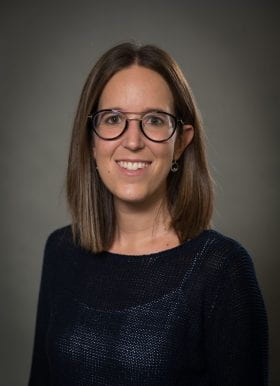
Farners Amargant i Riera, PhD
Assistant Professor of Obstetrics & Gynecology
- Email: farners@wustl.edu
The Riera Lab uses a multidisciplinary approach to investigate how biochemical and biomechanical signaling from the ovary regulates folliculogenesis and oocyte quality, and whether these mechanisms are altered in reproductive-associated diseases such as PCOS and aging.
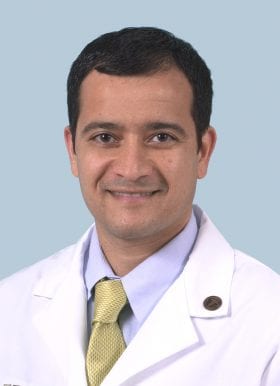
Rajendra Apte, MD, PhD
Paul A. Cibis Distinguished Professor of Ophthalmology and Visual Sciences
Department of Ophthalmology and Visual Science
- Email: apte@vision.wustl.edu
The Apte lab studies the molecular and cellular processes underlying neovascularization and cell degeneration in the retina.
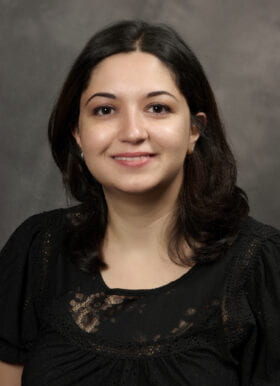
Ghazaleh Ashrafi
Assistant Professor, Cell Biology and Physiology, Genetics
- Email: ghazaleh@wustl.edu
The Ashrafi lab studies metabolic regulation of neurotransmission in health and in neurodegenerative diseases. To this end, the lab uses genetic, biochemical, and quantitative optical imaging techniques to probe metabolic and synaptic function in primary and stem cell-derived neurons and glial cells.
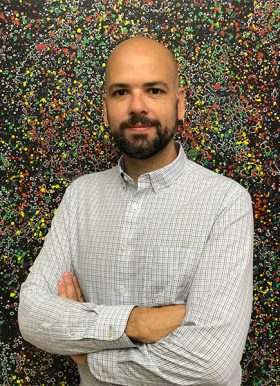
Luis Batista, PhD
Assistant Professor
Division of Hematology, Department of Medicine
- Email: LBATISTA@WUSTL.EDU
The Batista lab investigates the role of telomerase in stem cell function and regulation.
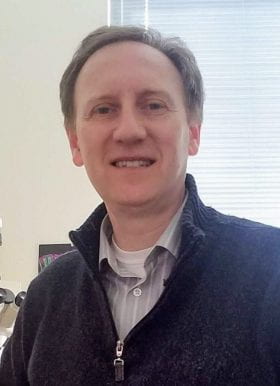
Mikahil Berezin, PhD
Associate Professor, Radiology
- Email: berezinm@wustl.edu
Research in the Berezin lab is focused on peripheral nerve imaging and understanding the mechanism of chronic pain and peripheral nerve degeneration in cancer patients. They also work to design image guided grafts for nerve restoration.
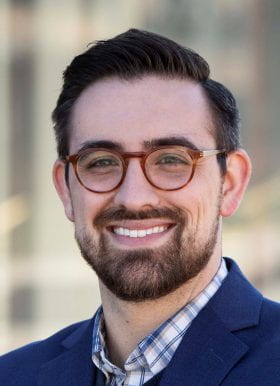
Matthew Bersi, PhD
Assistant Professor, Mechanical Engineering & Materials Science
- Email: mbersi@wustl.edu
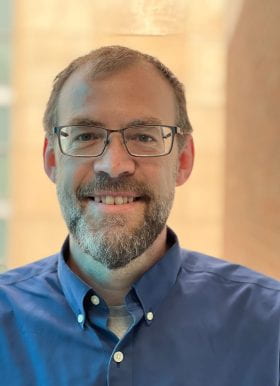
Thomas Brett, PhD
Associate Professor, Department of Medicine, Division of Pulmonary & Critical Care Medicine
- Email: tbrett@wustl.edu
The Brett Lab investigates the molecular mechanisms of chronic inflammatory lung disease and Alzheimer’s disease. We use structural, biophysical, model human tissues and complex cell co-culture models to investigate muco-obstructive diseases like cystic fibrosis and COPD. We also use structural, biophysical, and relevant human cellular models to investigate how microglial receptor-ligand interactions contribute to microglia function and neurodegeneration.

David Brogan, MD
Assistant Professor, Orthopedic Surgery
- Email: brogand@wustl.edu
Dr. Brogan’s research focuses on peripheral nerve injury and regeneration, using stem cells and 3D printed scaffolds as therapies.
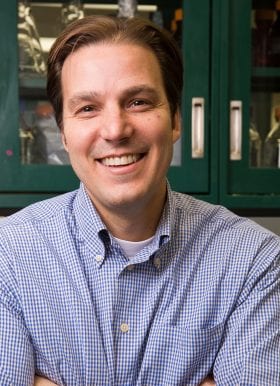
W. Todd Cade, PT, PhD
Professor
Program in Physical Therapy, Department of Medicine
- Email: tcade@wustl.edu
The Cade lab investigates how nutritional factors influence cell behavior, and how iPSCs can be used to model human muscle diseases.
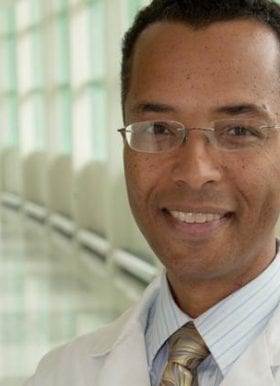
Alexendre R. Carter, MD, PhD
Associate Professor, Neurology
- Email: alexandre.carter@wustl.edu
The Carter lab studies the mechanisms of neuroplasticity at the brain, spinal cord and peripheral levels.

Valeria Cavalli, PhD
Associate Professor
Department of Neuroscience
- Email: cavalli@wustl.edu
The Cavalli lab studies the molecular mechanisms of PNS injury signaling and axon regrowth, and how this can inform CNS regeneration.
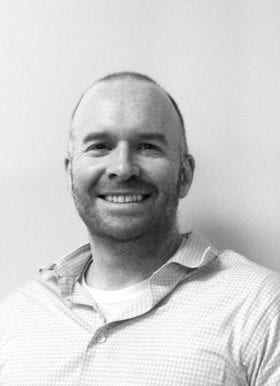
Grant Challen, PhD
Associate Professor, Division of Oncology, Department of Medicine
- Email: grantchallen@wustl.edu
The Challen lab focuses on how epigenetic marks regulate HSC self-renewal and differentiation, and how these are altered in lymphoma and leukemia.
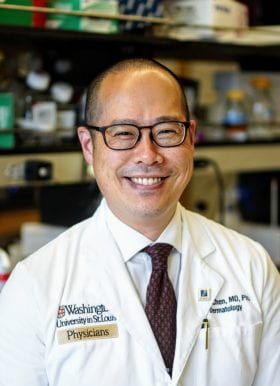
David Chen, MD, PhD
Assistant Professor, Department of Medicine, Division of Dermatology
- Email: davidchen@wustl.edu
The Chen Lab is interested in defining the genetic and epigenetic drivers of premalignant states in skin cancer.
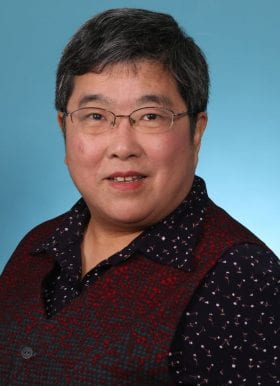
Shiming Chen, PhD
Dr. Bernard and Janet R. Becker Distinguished Professor, Ophthalmology and Visual Sciences
- Email: chenshiming@wustl.edu
The Chen Lab studies the molecular mechanisms controlling photoreceptor gene expression during photoreceptor development and maintenance in the mammalian retina, and how genetic mutations cause gene mis-regulation and defects in the function and survival of the photoreceptor neurons. They particularly focus on photoreceptor-specific transcription factors, such as CRX. Their ultimate goal is to develop therapeutic strategies for treatment.
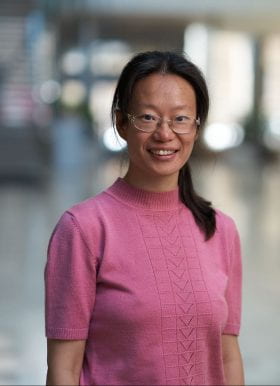
Yao Chen, PhD
Assistant Professor, Department of Neuroscience
- Email: yaochen@wustl.edu
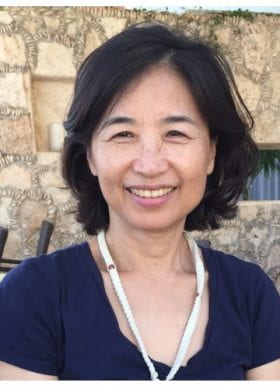
Kyunghee Choi, PhD
Professor, Department of Pathology & Immunology
- Email: kchoi@wustl.edu
The Choi lab studies hematopoietic and endothelial development and the interplay between angiogenesis and immunity in cancer
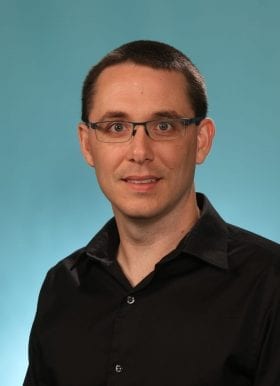
Brian Clark, PhD
Assistant Professor, Ophthalmology and Visual Sciences
- Email: brian.s.clark@wustl.edu
Using a suite of both moderate to high-throughput techniques in both mouse and zebrafish, the Clark Lab aims to identify the evolutionarily conserved and divergent pathways that regulate the temporally controlled specification of retinal cell fates.

F. Sessions Cole, MD
Park J. White M.D. Professor of Pediatrics
- Email: fcole@wustl.edu
The Cole lab investigates the genetic mechanisms that underlie neonatal respiratory distress syndrome.
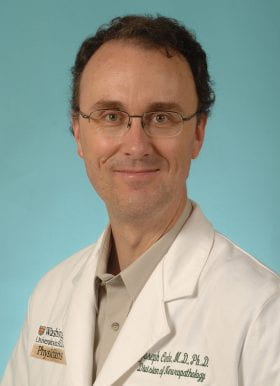
Joseph Corbo, MD, PhD
Professor
Department of Pathology and Immunology
- Email: jcorbo@wustl.edu
The Corbo lab studies the transcriptional regulatory networks that underlie the development, evolution, and diseases of photoreceptors.

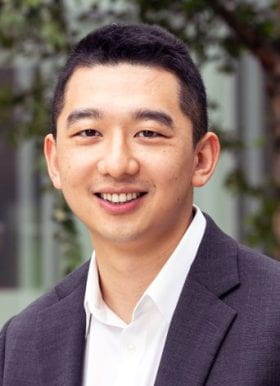
Yifan Dai, PhD
Assistant Professor, Biomedical Engineering
- Email: dyifan@wustl.edu
The Dai Lab focuses on exploring the physical chemistry of biology to understand how chemical functions are encoded in biological soft matter. Their goal is to use fundamental capabilities of synthetic biology to design smart medicine capable of sensing and responding to cellular states for the improvement of human well-being.

Nicholas Davidson, MD, Dsc
John E. and Adaline Simon Professor of Medicine and Division Chief of Gastroenterology
- Email: nod@wustl.edu
The Davidson Lab studies the role of gatekeeper genes that regulate intestinal and hepatic lipoprotein assembly and secretion, including apoB and microsomal triglyceride transfer protein (Mttp).
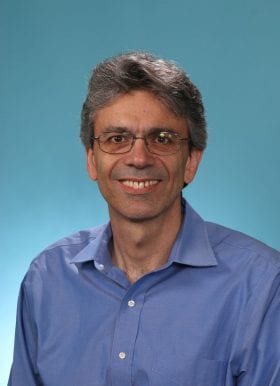
Aaron DiAntonio, MD, PhD
Alan A. and Edith L. Wolff Professor, Department of Developmental Biology
- Email: diantonio@wustl.edu
The DiAntonio lab studies the molecular mechanism that control axon generation, degeneration, and regeneration during development and disease.

Naomi Dirckx
Assistant Professor, Orthopedic Surgery
- Email: dirckx@wustl.edu
My lab studies the role of the citrate transporter SLC13A5 in bone mineralization throughout growth and aging, as well as the systemic implications of altered citrate partitioning in skeletal tissues by targeting osteogenic citrate metabolism.

Abhinav Diwan, MD
Associate Professor, Division of Cardiology, Department of Medicine
- Email: adiwan@wustl.edu
The Diwan lab studies regulation of lysosome machinery in cardiometabolic diseases.
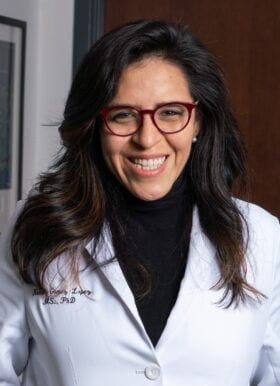
Nardhy Gomez-Lopez, PhD
Professor of Obstetrics & Gynecology
- Email: nardhy@wustl.edu
The Gomez-Lopez Lab studies how disruption of immune pathways in pregnancy can lead to changes in fetal deveopment, the maternal fetal interface, and neonatal life.

Farshid Guilak, PhD
Co-Director, Center of Regenerative Medicine; Mildred B. Simon Professor of Orthopedic Surgery; Director of Research, Shriner's Hospitals - St. Louis
- Email: guilak@wustl.edu
The Guilak Lab is pursuing a multidisciplinary approach to investigate the etiology and pathogenesis of osteoarthritis, as a basis for the development of new pharmacologic and stem cell therapies.
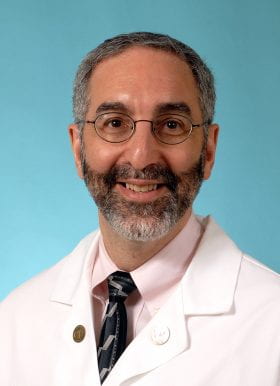
David Gutmann, MD, PhD
Donald O. Schnuck Family Professor & Vice Chair for Research Affairs
Department of Neurology
- Email: gutmannd@wustl.edu
The Gutmann lab studies the cellular and molecular basis underlying nervous system dysfunction in neurofibromatosis using mouse and iPSC models.
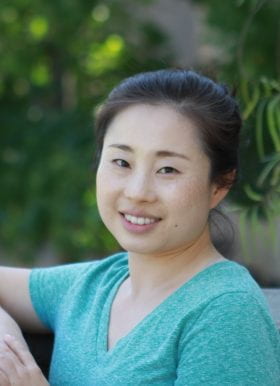
Claudia Han
Assistant Professor, Pathology and Immunology
- Email: claudiah@wustl.edu
We are interested in understanding the epigenetic mechanisms underlying the immune system’s contribution and response in neurodevelopmental and neurodegenerative diseases. We utilize both mouse and stem cell derived models.

James Huettner, PhD
Professor, Cell Biology and Physiology
- Email: jhuettner@wustl.edu
The Huettner lab studies how glutamate gated ion channels influence synapses and the differentiation of neurons from ES cells.
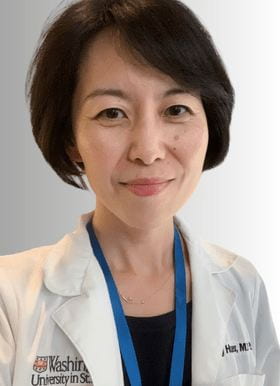
Jing Hughes
Assistant Professor, Endocrinology
- Email: jing.hughes@wustl.edu
We study how the primary cilium, sensory antenna of the cell, regulates signaling and secretory functions in the pancreatic islet.
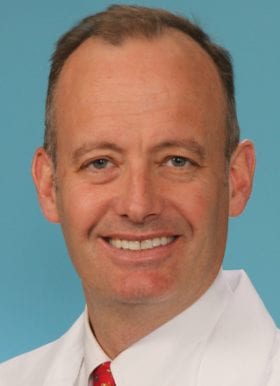
Benjamin Humphreys, MD, PhD
Joseph Friedman Professor of Renal Diseases in Medicine, Division of Nephrology, Department of Medicine
- Email: humphreysbd@wustl.edu
The Humphreys Lab develops new and innovative treatments to help patients with kidney disease. They are using human stem cells to generate kidney organoids in a dish, with a goal of one day transplanting them into patients with kidney failure. They also study the kidney’s ability to regenerate itself so that they can harness this ability for therapeutic uses.
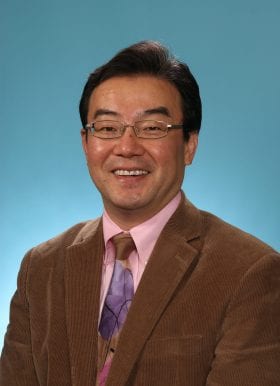
Shin-Ichiro Imai, MD, PhD
Professor, Developmental Biology
- Email: imaishin@wustl.edu
The Imai lab investigates the tissues, factors, and molecular mechanisms control mammalian aging.

Sanjay Jain, MD, PhD
Associate Professor, Division of Nephrology, Department of Medicine
- Email: sanjayjain@wustl.edu
The Jain lab studies the molecular and cellular mechanisms that regulate maintenance, differentiation and function of kidney progenitors in normal development and disease states.
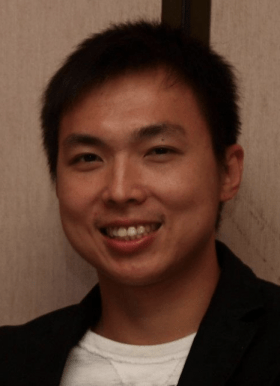
Sheng Chih (Peter) Jin, PhD
Assistant Professor, Department of Genetics
- Email: jin810@wustl.edu
Research in the Jin lab is devoted to identifying the genes and elucidating the molecular, cellular, and developmental mechanisms that drive the development of specific neurodevelopmental disorders, including congenital hydrocephalus, cerebral palsy, and Moyamoya disease.
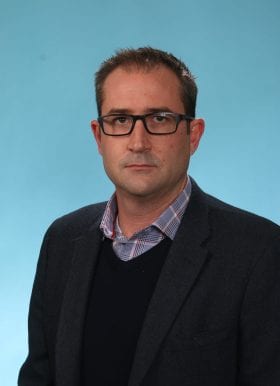
Aaron Johnson, PhD
Assistant Professor, Developmental Biology
- Email: anjohnson@wustl.edu
The Johnson lab studies the development and regeneration of muscle in fly and human.
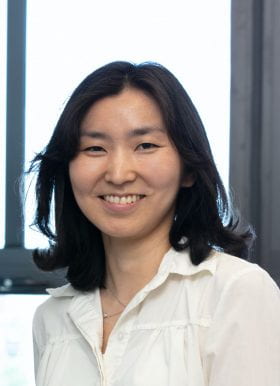
Yoon-A Kang, PhD
Assistant Professor, Department of Medicine, Division of Hematology
- Email: yoonakang@wustl.edu
The research interests of the Kang lab are understanding the mechanisms underlying cell fate decision and lineage specification in hematopoietic stem cells and multipotent progenitors to modulate lineage output in disease and aging contexts.
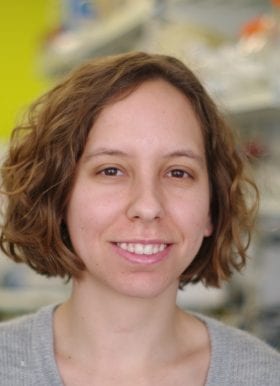
Celeste Karch, PhD
Associate Professor, Psychiatry
- Email: karchc@wustl.edu
The Karch lab studies the molecular mechanisms underlying neurodegenerative tauopathies.
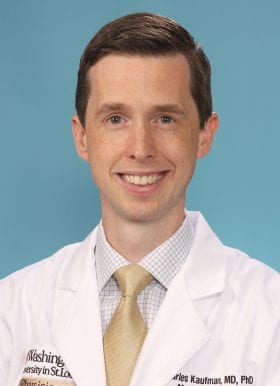
Charles Kaufman, MD, PhD
Assistant Professor, Division of Oncology, Department of Medicine
- Email: ckkaufman@wustl.edu
The goal of the Kaufman lab is to understand how cells change their gene expression programs during normal development and cancer formation.

Albert Kim, MD, PhD
Professor, Neurosurgery
- Email: kima@wustl.edu
The Kim Lab studies the cell-intrinsic molecular mechanisms governing brain cancer stem cell function, normal nervous system development, and the development of clinical surgical protocols to deliver cell-based and drug therapies for a variety of nervous system disorders.
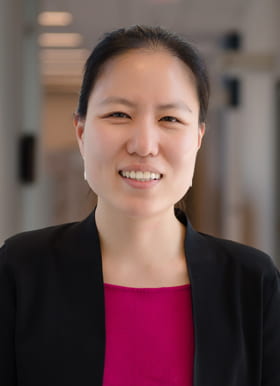
Miriam Kim
Assistant Professor, Oncology
- Email: miriamykim@wustl.edu
Focused research on rational manipulation of human hematopoietic cells for the treatment of disease by combining genetically engineered hematopoietic stem cells and chimeric antigen receptor T cells for therapy of acute myeloid leukemia.

Kristen Kroll, PhD
Professor, Developmental Biology
- Email: kkroll@wustl.edu
The Kroll lab studies the epigenetic and transcriptional regulators that control fate decisions from embryonic stem cells into the neural lineage.
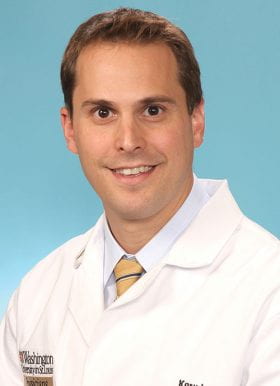
Kory Lavine, MD, PhD
Associate Professor, Division of Cardiology, Department of Medicine
- Email: klavine@wustl.edu
The Lavine lab studies heart development and the role of macrophages in cardiac recovery and reprogramming.
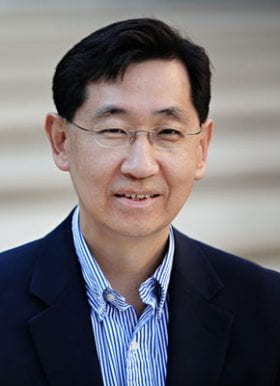
Jin-Moo Lee, MD, PhD
Andrew B & Gretchen P Jones Professor. Chairman, Department of Neurology
- Email: leejm@wustl.edu
The Lee Lab is engaged in translational research to investigate cellular and molecular mechanisms involved in acute and chronic brain injury, with a focus on ischemic stroke and Alzheimer’s disease. An additional focus of the lab is neuroplasticity and brain repair after stroke. A major motivation of the lab is to identify strategies and targets for mitigating brain injury and enhancing brain repair after injury.
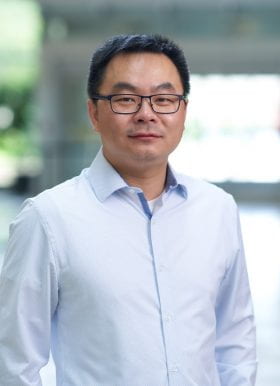
Tristan Qingyun Li, PhD
Assistant Professor, Departments of Neuroscience and Genetics
- Email: qingyunli@wustl.edu
The Li lab is broadly interested in neuroimmunology with a focus on microglial biology. They combine cutting-edge single-cell genomic technologies with in vitro and in vivo genetic, molecular, and cellular tools to address these fundamental questions, which also have tremendous translational potential. The overarching goal is to gain a better understanding of microglial functions in the establishment of the nervous system, as well as how changes in these functions contribute to aging and neurological diseases.

Susan Mackinnon, MD
Sydney M. Jr. and Robert H. Shoenberg Professor and Chief, Division of Plastic and Reconstructive Surgery, Department of Surgery
- Email: mackinnon@wudosis.wustl.edu
The Mackinnon lab studies peripheral nerve allotransplantation and the effect of GDNF on nerve regeneration.
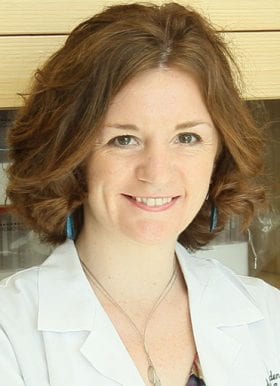
Audrey McAlinden, PhD
Associate Professor, Orthopedic Surgery
- Email: mcalindena@wustl.edu
The McAlinden lab studies the molecular mechanisms regulating cartilage development and maintenance.

Helen McNeill, PhD
Barnes Jewish Investigator and Larry J. Shapiro and Carol-Ann Uetake-Shapiro Professor of Developmental Biology
- Email: mcneillh@wustl.edu
The McNeill Lab works on the roles of Fat cadherins in growth and regeneration, using Drosophila, mouse, and hydra.

Robert Mecham, PhD
Alumni Endowed Professor of Cell Biology and Physiology
- Email: bmecham@wustl.edu
The Mecham Lab studies how the extracellular matrix influences tissue development and regulates growth factor signaling.
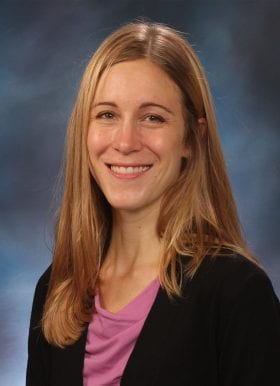
Gretchen Meyer, PhD
Assistant Professor, Physical Therapy
- Email: meyerg@wustl.edu
The Meyer lab studies the effects of muscle injury at the molecular and tissue level and the role of adipose tissue in muscle repair.